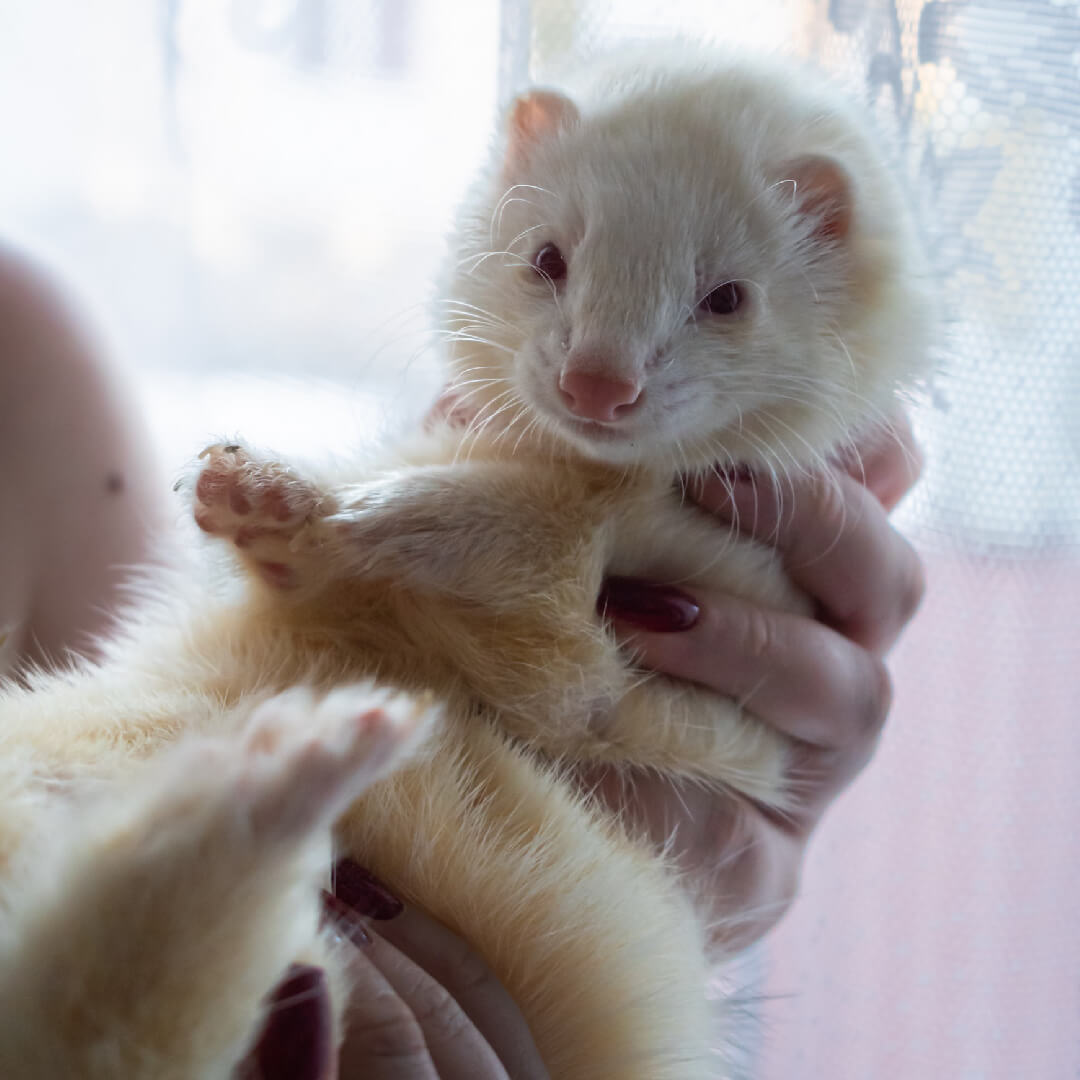Ferrets are lively and curious pets known for their playful nature and mischievous antics. To keep your ferret happy and healthy, it’s crucial to provide them with a balanced and nutritious diet. Ferrets have specific dietary requirements that differ from those of other animals. In this guide, we’ll explore the essential aspects of feeding your ferret, including their nutritional needs and dietary tips.
1. Unlocking the Secrets to Feeding Your Ferret: A Recipe for Health and Happiness
Ferrets are obligate carnivores, which means their diet primarily consists of meat and animal-based protein. Unlike some other pets, such as dogs or rabbits, ferrets lack the ability to digest plant matter efficiently. Here are the key nutritional requirements for ferrets:
A. High-Quality Protein
Ferrets require a diet rich in high-quality animal protein. Look for ferret food that lists meat, poultry, or fish as the primary ingredient. Avoid food products with excessive fillers or grains.
B. High Fat Content
Ferrets have a fast metabolism and require a diet with a high-fat content. Look for ferret food that contains at least 18-20% fat.
C. Low Fiber
Ferrets have a short digestive tract and cannot efficiently digest fiber. Choose ferret food with low fiber content, typically less than 3-5%.
D. Taurine
Taurine is an essential amino acid for ferrets. Ensure that the ferret food you choose contains sufficient taurine to support their heart and overall health.
E. Limited Carbohydrates
Ferrets have limited carbohydrate needs. Avoid food products that contain excessive carbohydrates, as they can lead to obesity and other health issues.
2. Commercial Ferret Food vs. Homemade Diets
When it comes to feeding your ferret, you have two primary options: commercial ferret food or homemade diets. Here’s a brief overview of each:
A. Commercial Ferret Food
Commercial ferret food is convenient and designed to meet the specific nutritional needs of ferrets. Look for high-quality ferret food brands that list meat or poultry as the primary ingredient. Pelleted diets are a good choice as they help prevent selective feeding.
B. Homemade Diets
Homemade diets can be tailored to your ferret’s needs, but they require careful preparation to ensure they meet nutritional requirements. Homemade diets often include raw or cooked meats, organs, and supplements. Consult with a veterinarian or ferret nutritionist to create a balanced homemade diet.
3. Feeding Schedule and Portions
Establishing a regular feeding schedule is essential for your ferret’s well-being. Here are some tips for feeding your ferret:
A. Frequency
Ferrets have high metabolisms and may need to eat multiple times a day. Younger ferrets (kits) may require more frequent meals, while adult ferrets can typically eat two to four times a day.
B. Portion Control
Measure your ferret’s food portions to prevent overfeeding. Follow the recommended serving sizes on the food packaging or as advised by your veterinarian.
C. Fresh Water
Provide access to fresh, clean water at all times. Ferrets are prone to dehydration, so ensure their water bowl is regularly refilled.
4. Treats and Snacks
While it’s tempting to give your ferret treats and snacks, be cautious about their nutritional value and portion sizes. Commercial ferret treats should be limited, as they can be high in sugar and unhealthy ingredients. Instead, offer small pieces of cooked meats or commercially available ferret-safe treats in moderation.
5. Dietary Supplements
In most cases, commercial ferret food provides the necessary vitamins and minerals. However, if you’re feeding a homemade diet, consult with a veterinarian to determine if any supplements are required. Common supplements for ferrets may include taurine and fatty acids.
6. Transitioning to a New Diet
If you’re transitioning your ferret to a new diet, do so gradually to avoid digestive upset. Mix a small amount of the new food with their current food, gradually increasing the proportion of the new food over several days or weeks.
7. Monitoring Your Ferret’s Health
Regularly monitor your ferret’s health and weight. Sudden changes in appetite, weight loss, lethargy, or other concerning signs should prompt a visit to the veterinarian. Ferrets are prone to certain health issues, so preventive care is crucial.
Final Thoughts
Feeding your ferret a balanced and nutritious diet is essential for their overall health and well-being. Understanding their specific nutritional requirements and providing them with high-quality food is key to ensuring a long and happy life for your furry friend.
Whether you choose commercial ferret food or a homemade diet, always prioritize the nutritional needs of your ferret, and consult with a veterinarian for guidance on their dietary requirements. By providing proper nutrition and care, you can enjoy many years of joy and companionship with your playful and lovable ferret.




